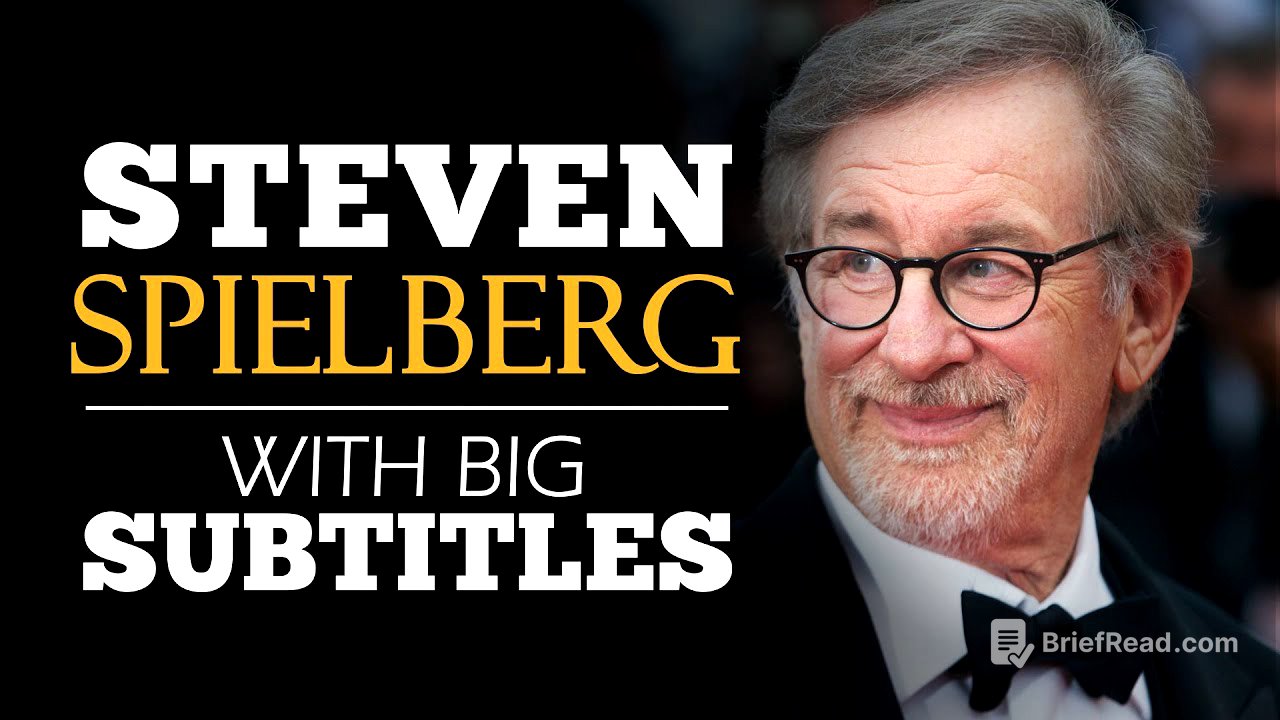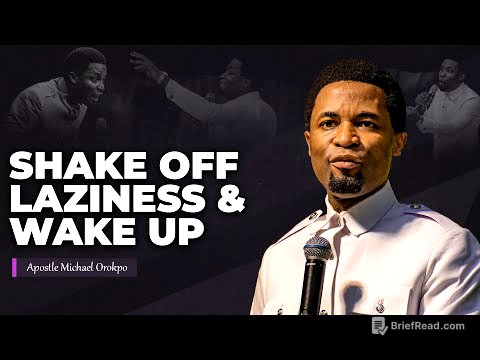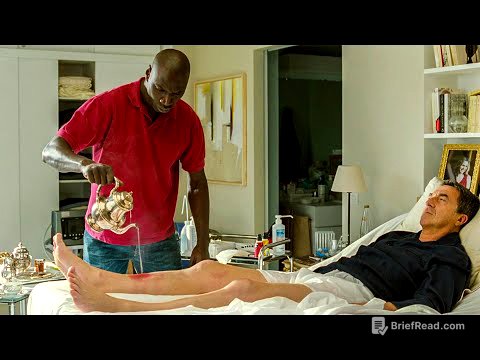TLDR;
In his commencement address to Harvard's Class of 2016, Steven Spielberg shares personal anecdotes and insights, urging graduates to listen to their intuition, learn from history, confront hatred, and embrace human connection. He emphasises the importance of character-defining moments, the need to combat tribalism with empathy, and the responsibility of each generation to build a better future.
- Listen to your intuition to define your character.
- Learn from history to understand the present and future.
- Combat hatred and tribalism with empathy and humanity.
- Embrace human connection and shared experiences.
- Act in service of others and strive for a just and peaceful future.
Introduction and Personal Anecdote [0:11]
Spielberg begins by expressing his honour at addressing the graduating class and their families. He shares a personal story about dropping out of college to pursue his dream job at Universal Studios, and later returning to complete his degree in his fifties to set an example for his seven children. He acknowledges that many graduates may be uncertain about their future paths, and introduces the concept of "character-defining moments".
Character-Defining Moments and Intuition [2:22]
Spielberg explains that life is a series of character-defining moments, where individuals make choices that reveal their true selves. He stresses the importance of listening to one's intuition, distinguishing it from conscience: intuition whispers possibilities, while conscience shouts obligations. He argues that tuning into his intuition guided him towards meaningful projects and away from others, shaping his career.
The Power of Storytelling and Learning from the Past [5:10]
Spielberg reflects on his early "escapist" films and how directing "The Color Purple" broadened his perspective, revealing the power of film to convey deep truths and become a mission. He encourages graduates to confront painful realities and challenges, emphasising their role as future innovators and leaders. Quoting Michael Crichton, he highlights the importance of studying history to understand the present and shape a better future, urging them to learn from previous generations and their stories.
Combating Hatred and Embracing Humanity [8:10]
Spielberg stresses the importance of moral choices, drawing parallels to historical figures like Abraham Lincoln and Oskar Schindler. He acknowledges the prevalence of hatred in the world, including racism, homophobia, and religious intolerance, sharing his own experiences with anti-Semitism. He calls for empathy and action in the service of others, urging graduates to vote, protest peacefully, and speak up for those who are not heard.
The Importance of Connection and Remembrance [11:36]
Spielberg highlights the need to replace fear with curiosity and find common ground by connecting with others. He encourages graduates to remember the sacrifices of past generations, particularly those who fought for freedom, and to "reflect the radiance of their deeds." He urges them to stay connected, look each other in the eyes, and cherish the shared humanity and friendships formed at Harvard.
Concluding Remarks and Hope for the Future [14:31]
Spielberg concludes by reminding the graduates that they are the generation on whose shoulders the next will stand, and that they will determine the future. He expresses his hope for a future filled with justice and peace, and wishes them a "Hollywood-style happy ending," encouraging them to embrace their roles and responsibilities as they embark on their journeys.








